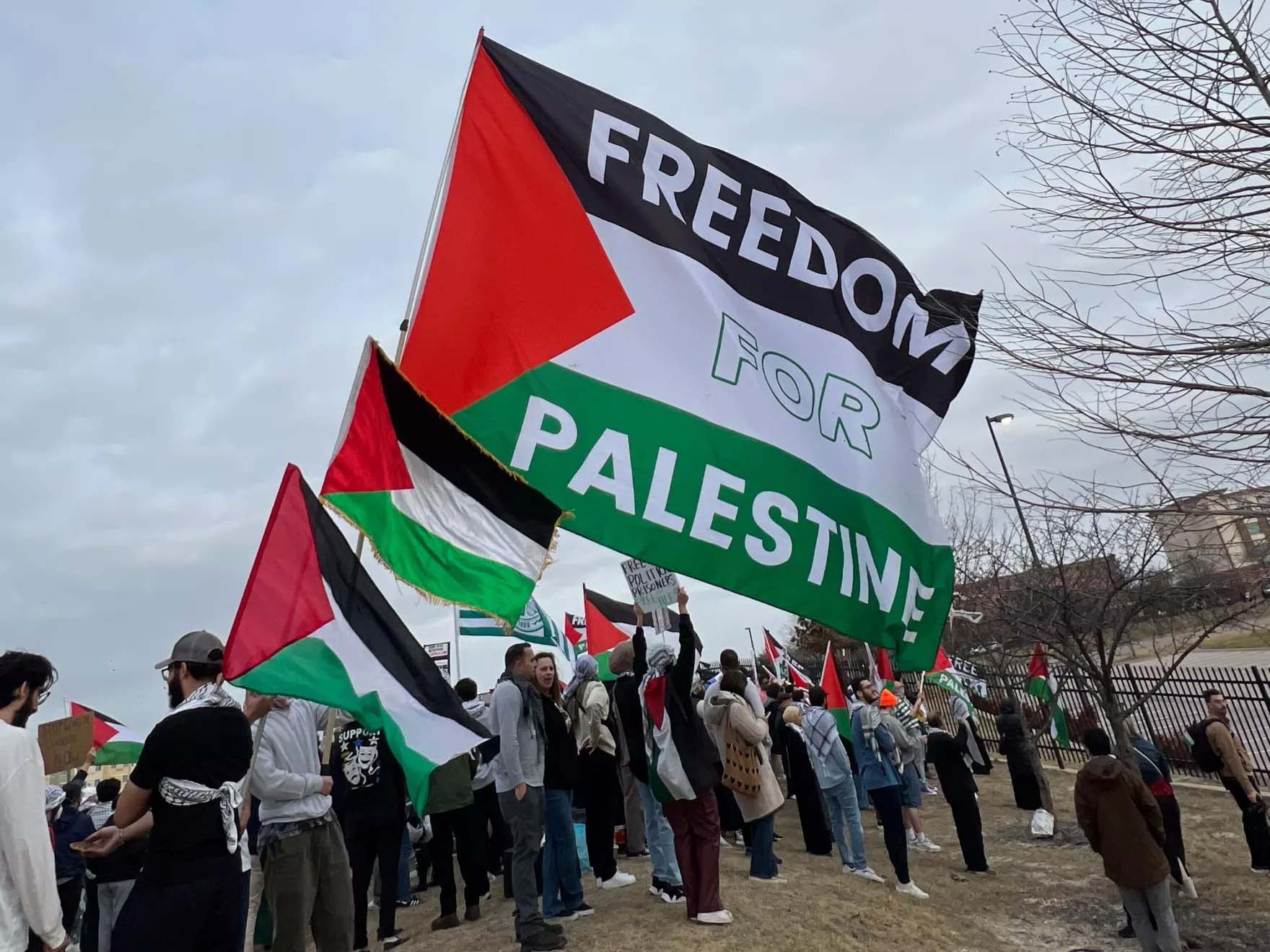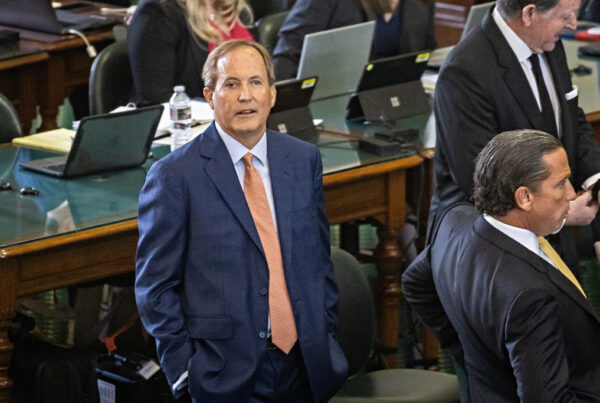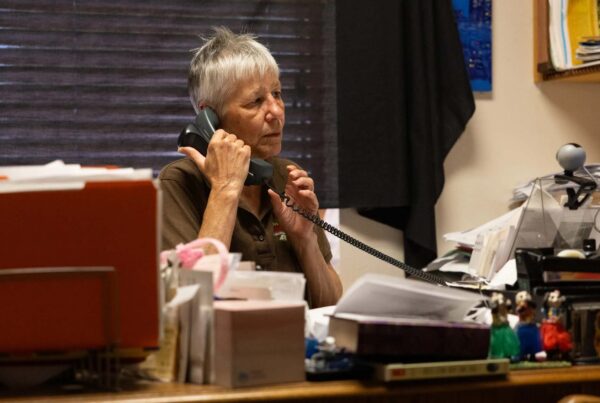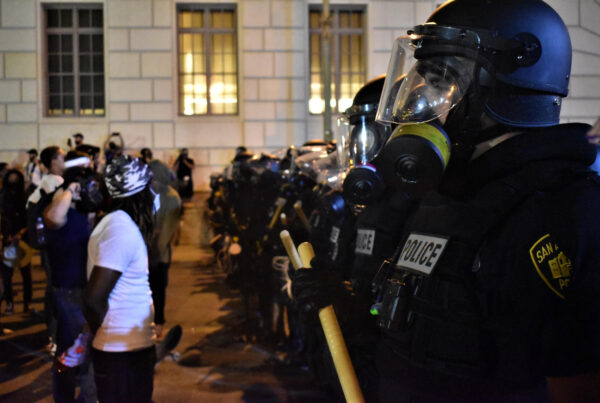From KERA News:
Emad Salem was 7 years old when he and his family left the West Bank after the military raided their village.
He said watching the situation in Gaza takes him back to when he had to flee.
“When I see the pictures on TV of refugees and guns, running away from one area to another one, it reminds me what has happened to me in 1967 … I was carrying a bag and running away from the war because the Israeli army told us, if you don’t leave, you will die,” he said. “And that’s what I see in Gaza right now.”
More than 31,000 Palestinians have been killed since Israel’s bombardment of Gaza began in October after a Hamas-led attack on southern Israel killedabout 1,200 people.
It’s a painful conflict that some say has become a genocide, but that Israel says is an act of self defense following the Oct. 7 attack.
But as the war drags on, some Arab Americans in North Texas are frustrated with President Joe Biden’s handling of the situation and his reluctance to call for a permanent ceasefire. And they’re hoping to send a message with their vote this fall.
In Texas’ recent Democratic presidential primary, Salem urged voters to leave that line blank — and he said he’s doing the same in November. He supports the Texas Democratic Party — which passed a resolution last fall calling for a ceasefire — but said his community “feels betrayed” by Biden’s inaction.
“We want President Biden to know that we are disappointed in his policy in Gaza,” Salem said.
Other Palestinians in North Texas are opting out of voting entirely.
“I think it’s to send a clear message,” said Laila Mohamed, a 19-year-old student at the University of Texas at Dallas and a member of the Palestinian Youth Movement. “We oppose what’s going on and we want people to stand in solidarity with the people of Gaza.”
Historically, Arab Americans have tended to lean Democratic — but this year many are ditching the “vote blue no matter who” approach, Mohamed said, pointing to the billions in military aid the U.S. sends to Israel each year under an agreement established under the Obama administration.
An Arab American Institute poll from late October shows support among Arab American voters for Biden dropped from 59% in 2020, to 17% after the start of the war.
“I think it’s come to a point where people are just going to vote, you know, third party if they’re opposing the genocide or just not vote at all,” she said, “because these elected officials don’t represent us and, you know, aren’t listening to us, essentially.”
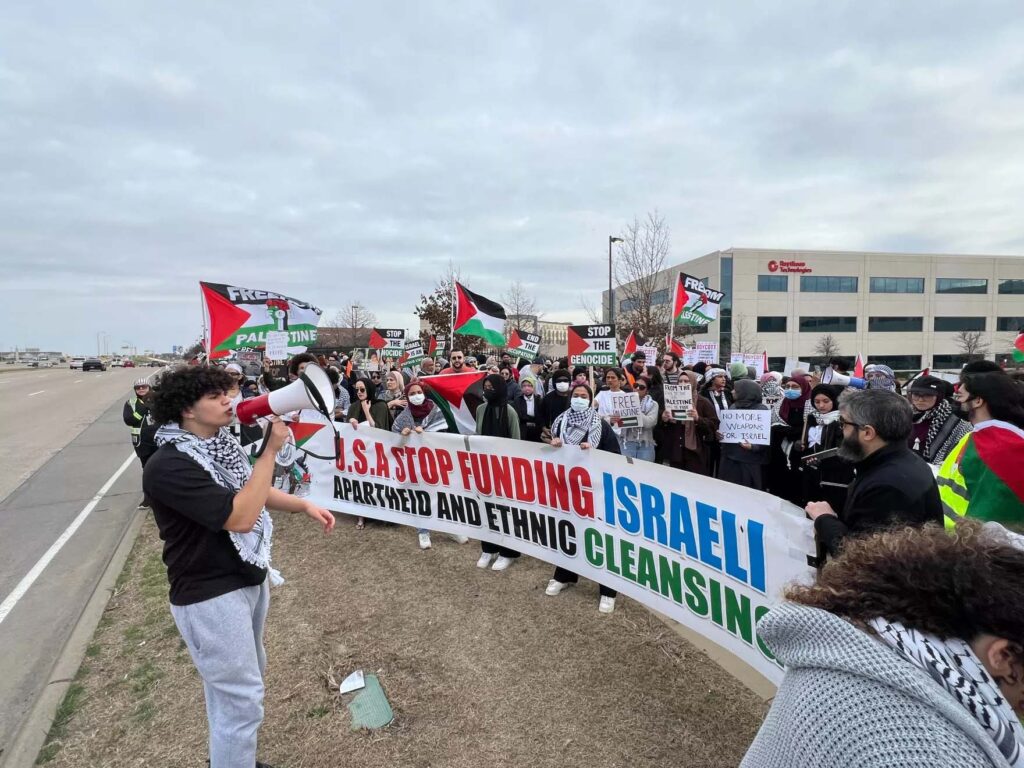
Protesters outside of Raytheon Technologies on Feb. 16, 2024. Zara Amaechi / KERA
But some are still grappling with how to vote this fall.
Hussain Alaydi was born in a refugee camp in Gaza and moved to the U.S. after high school.
He still has family there that he tries his best to keep in contact with, but it’s become increasingly difficult.
“My family lost over 100 persons within the last five months. I mean, my own sister, this is the closest to me, and my nephew,” he said. “Now, there are people dying in the West Bank as well.”
He joined humanitarian coalitions to help call for a ceasefire, but lately he’s been losing hope for a better situation.
“I’m doing everything I can to help my people,” said Alaydi. “But I don’t think this is going to help because we’ve been talking for 50 years. Nothing is happening.”
Every election he votes Democratic — and he still plans to vote for Biden this year, though not because he supports the president. Alaydi is voting because he believes it’s his civic duty.
“We’re disappointed in [Biden] as a human being,” he said, “not just the president of the United States.”
Texas didn’t have an uncommitted option on the primary ballot like other states, including Michigan, where more than 100,000 Democratic voters chose the option to protest Biden’s stance on the war.
Biden won the primary in Texas with more than 84% of votes over his seven challengers. Unlike in swing states, his chances in Texas in the general election against former president Donald Trump likely won’t hinge on protest votes: Trump won the state by 6 percentage points in 2020.
But for some Arab-Americans in Texas, not voting for Biden seems to be the loudest option to demand a permanent ceasefire, regardless of their impact.
Emad Salem knows there’s not much he can do, but he’s still hopeful that change will come.
“We want our party to do the right thing, to stand on the right history and to push to end this genocide in Gaza,” he said.


